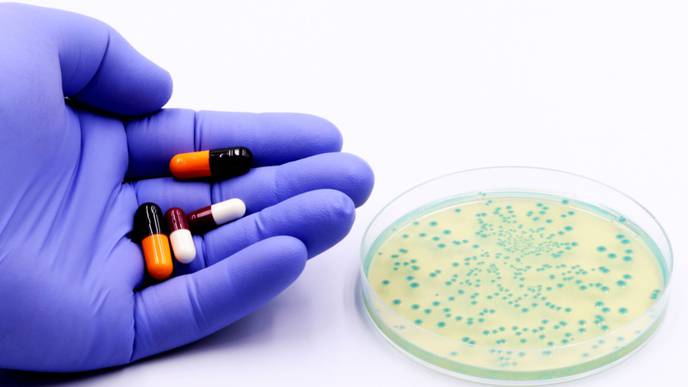Study Reveals Surprising Link Between Malnutrition and Rising Antibiotic Resistance

11/20/2023
University of B.C. researchers have uncovered startling connections between micronutrient deficiencies and the composition of gut microbiomes in early life that could help explain why resistance to antibiotics has been rising across the globe.
The team investigated how deficiencies in crucial micronutrients such as vitamin A, B12, folate, iron, and zinc affected the community of bacteria, viruses, fungi and other microbes that live in the digestive system.
They discovered that these deficiencies led to significant shifts in the gut microbiome of mice—most notably an alarming expansion of bacteria and fungi known to be opportunistic pathogens.
Importantly, mice with micronutrient deficiencies also exhibited a higher enrichment of genes that have been linked to antibiotic resistance.
"Micronutrient deficiency has been an overlooked factor in the conversation about global antibiotic resistance," said Dr. Paula Littlejohn, a postdoctoral research fellow with UBC's department of medical genetics and department of pediatrics, and the BC Children's Hospital Research Institute. "This is a significant discovery, as it suggests that nutrient deficiencies can make the gut environment more conducive to the development of antibiotic resistance, which is a major global health concern."
Bacteria naturally possess these genes as a defense mechanism. Certain circumstances, such as antibiotic pressure or nutrient stress, cause an increase in these mechanisms. This poses a threat that could render many potent antibiotics ineffective and lead to a future where common infections could become deadly.
Antibiotic resistance is often attributed to overuse and misuse of antibiotics, but the work of Dr. Littlejohn and her UBC colleagues suggests that the 'hidden hunger' of micronutrient deficiencies is another important factor.
"Globally, around 340 million children under five suffer from multiple micronutrient deficiencies, which not only affect their growth but also significantly alter their gut microbiomes," said Dr. Littlejohn.
"Our findings are particularly concerning as these children are often prescribed antibiotics for malnutrition-related illnesses. Ironically, their gut microbiome may be primed for antibiotic resistance due to the underlying micronutrient deficiencies."
The study, published this week in Nature Microbiology, offers critical insights into the far-reaching consequences of micronutrient deficiencies in early life.
It underscores the need for comprehensive strategies to address undernutrition and its ripple effects on health. Addressing micronutrient deficiencies is about more than overcoming malnutrition, it may also be a critical step in fighting the global scourge of antibiotic resistance.
More information: Paula T. Littlejohn et al, Multiple micronutrient deficiencies in early life cause multi-kingdom alterations in the gut microbiome and intrinsic antibiotic resistance genes in mice, Nature Microbiology (2023). DOI: 10.1038/s41564-023-01519-3
Citation: Study reveals surprising link between malnutrition and rising antibiotic resistance (2023, November 17) retrieved 17 November 2023 from https://medicalxpress.com/news/2023-11-reveals-link-malnutrition-antibiotic-resistance.html
This document is subject to copyright. Apart from any fair dealing for the purpose of private study or research, no part may be reproduced without the written permission. The content is provided for information purposes only.

Facebook Comments